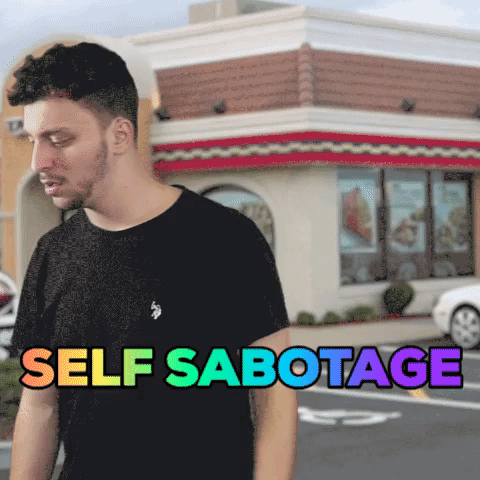I am a huge advocate for therapy. Personally, I struggle with major depressive disorder and anxiety disorder, so when I finally took the step to get help and start going to counseling, it changed my life, as cliche as that sounds. Therapy was a catalyst for me overcoming my year-long depressive episode, as well as other struggles, such as anxiety, in common settings.
Unfortunately, mental health still seems to be a taboo subject. Although I (and many others) struggle, the stigma still pervades, which in turn deters individuals from getting the help they need. We need to recognize that it is a part of us — not something to hate but accept.
Due to the stigma and multitude of other factors (cough cough insurance coverage), getting help is a vast issue among the population with mental health issues. From my own experience, it took me half of a year to finally get the help I needed due to the fear of admitting it to myself, as well as to others. Although "ending the stigma" is a separate topic to get into, my intention is to deliver what I learn in therapy to my readers.
In the material and advice my therapist gave me, I noticed that the majority of this information would be valuable to those who suffer in silence, no matter what struggle they have; so if you are a part of the five percent of the population who battle with mental health, keep reading.
1. Dig deeper

In terms of depression and anxiety, it is imperative to dig deeper and find what your thoughts and feelings stem from. Start by keeping a journal — whether it is logging in a notebook or a phone — write down your raw feelings.
Writing these down alone helps one feel better, but you will start to notice a pattern — specifically in the derivative of these emotions. Maybe it is a specific person, fear, or event that triggers these episodes. Once you find the root, it is significantly easier to get help.
2. Recognize your cognitive distortions

Cognitive distortions are irrational thoughts that influence our emotions. Everyone has experienced them before, however, the degree to which they occur is where the harmfulness can tie in. These include distortions such as catastrophizing, emotional reasoning, personalization, and many more.
You can discover 20 of them here.
When you point out distortions that you carry out in your daily life, star the top three you think are most significant. Write them down, and start journaling again — however, log instances where you experience these cognitive distortions. Observe the pattern of how you get into these negative thoughts and emotions and recognize that these are irrational. Tell yourself this the next time these emotions reoccur.
3. Stop self-sabotaging

Self-sabotage and self-esteem are intertwined. If you have low self-esteem, it is more likely you self-sabotage. Reasons can be due to worth, control, perceived fraudulence, familiarity, scapegoating, or even boredom. However, digging deeper again, the common denominator among all of these seems to be a fear of failure. No one wants to try their best and not succeed.
Change your thought patterns and behaviors to ones that are more positive. Celebrate achievements, set goals, and make meaningful changes. Remember that it is impossible to do everything right, so don't beat yourself up too much.
4. Practice mindfulness

Mindfulness is a monumental part of our lives. Mindfulness is the state of being conscious or aware of something. Exercises you can practice are meditation, body scan, mindful eating, and five senses. These are very generic but powerful ways to accept your situation and move on. The object isn't to necessarily get rid of negative thoughts, but to let them pass. Recognize that it is a thought you are having, and choose to let it go.
Two strategies I use in my everyday life are meditation and body scans. With meditation, sit quietly and pay attention to your breathing. Picture yourself on the side of a busy road where the cars are your thoughts, and just watch them pass. When you will inevitably try to focus on one car, or thought, recognize you are having this thought, and let it pass once again.
The body scan is a great way to ground yourself by paying attention to the physical sensations throughout your body; begin by paying attention to the sensations in your feet, whether it be temperature, pressure, pain, or a breeze. Slowly move upward on every inch of your body. Only pay attention to these sensations, let any other thoughts pass. You'll find by the time you reach your head, you will feel mindful.
In an instance where anxiousness is high and you only have a moment to bring yourself back to the present, practice your five senses. Name five things you can see, four things you can feel, three things you can hear, two things you can smell, and one thing you can taste. The numbers are only a guideline, as it is just a way to get your thoughts off of something else for a moment.
5. Practice relaxation techniques

In a situation where one is confronted with anxiety, the body enters the fight-or-flight response, where increased heart rate, sweating, tense muscles, shakiness, and more are frequent experiences. Techniques such as deep breathing, imagery, and progressive muscle relaxation are useful in stopping these responses, however, they take practice.
Deep breathing is pretty self-explanatory: our breathing becomes rapid and shallow in anxious episodes, so deep breathing is the antagonist to this. Practice the 5-5-5 rule, where you breathe in for five seconds, hold it for five seconds, and breath out for five seconds. Repeat this until your body has grounded you.
Imagery takes a little more work. Think about some of your favorite places in every detail possible. If you really try to think about what it is like, you might begin to have feelings you associate with that place. Whether it be the beach, relaxing at home, or playing with a pet, make sure to imagine the sight, sound, touch, taste, and smell.
During fight-or-flight, muscle tension increases, sometimes without us knowing. Becoming aware of this tension helps address stress. Progressive muscle relaxation is a technique that requires a private location where you intentionally tense each muscle, and then release, starting from your feet up to your head. Hold the tension for five seconds, and release; notice how your body part feels differently after releasing.
6. Be accepting

As much as we try to fight certain situations, sometimes the best scenario is to accept people and events for what they are without trying to change them. Allow your emotions to exist without judging or labelling them. Let go of controlling and instead become comfortable with not knowing. Let go of expectations and live in the moment, as cheesy as it sounds.
7. Express gratitude

Start your day by thinking of 10 things you are grateful for — try to be unique in what you think about. It could be something as simple as "I'm grateful for being able to go to school" or "I'm grateful for having nice roommates" or, hell, "I'm grateful for having Cheez-It's in my pantry."
When something good happens in your day, appreciate it. Before you go to bed, think of the best part of your day and focus on it for a couple of minutes.
Start integrating these exercises and thought patterns into your daily life. Recognize you are not alone in your journey to getting better. And by all means, if it doesn't, get the help you need. You are strong and deserving, and you WILL overcome this.



















